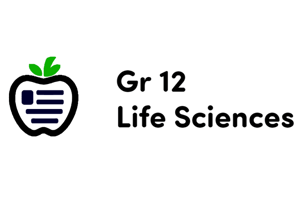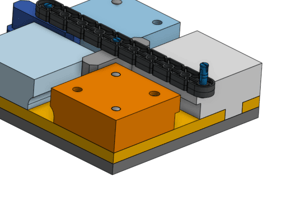Podcast
Questions and Answers
What is the primary function of the uterine (Fallopian) tubes?
What is the primary function of the uterine (Fallopian) tubes?
- To connect the external genitals to the uterus
- To produce milk
- To provide lubrication to the vaginal opening
- To transport ova from the ovaries to the uterus (correct)
Which part of the uterus is primarily responsible for thickening in preparation for a potential pregnancy?
Which part of the uterus is primarily responsible for thickening in preparation for a potential pregnancy?
- Cervix
- Fundus
- Endometrium (correct)
- Myometrium
Which structure is NOT considered part of the external genitalia (vulva)?
Which structure is NOT considered part of the external genitalia (vulva)?
- Clitoris
- Labia Majora
- Cervix (correct)
- Mons Pubis
What is the function of the greater vestibular (Bartholin’s) glands?
What is the function of the greater vestibular (Bartholin’s) glands?
Which of the following structures is associated with the milk production process?
Which of the following structures is associated with the milk production process?
What is the primary function of interstitial cells (Leydig cells) in the testes?
What is the primary function of interstitial cells (Leydig cells) in the testes?
Which structure is responsible for carrying mature sperm from the epididymis to the ejaculatory duct?
Which structure is responsible for carrying mature sperm from the epididymis to the ejaculatory duct?
What role do seminal vesicles play in male reproductive health?
What role do seminal vesicles play in male reproductive health?
Which gland produces a pre-ejaculatory fluid that lubricates the urethra?
Which gland produces a pre-ejaculatory fluid that lubricates the urethra?
What is the function of the fimbriae at the end of the fallopian tubes?
What is the function of the fimbriae at the end of the fallopian tubes?
Which structure prevents the urethra from collapsing during an erection?
Which structure prevents the urethra from collapsing during an erection?
Which hormone is primarily secreted by the ovaries?
Which hormone is primarily secreted by the ovaries?
What is the primary function of the prostate gland in male reproduction?
What is the primary function of the prostate gland in male reproduction?
Flashcards
Testes function
Testes function
Male gonads that produce sperm and testosterone.
Seminiferous Tubules
Seminiferous Tubules
Coiled structures within testes where sperm production happens.
Leydig Cells function
Leydig Cells function
Produce testosterone in the testes.
Epididymis function
Epididymis function
Signup and view all the flashcards
Ductus Deferens function
Ductus Deferens function
Signup and view all the flashcards
Ovaries Function
Ovaries Function
Signup and view all the flashcards
Fimbriae function
Fimbriae function
Signup and view all the flashcards
Scrotum function
Scrotum function
Signup and view all the flashcards
Uterine Tubes Function
Uterine Tubes Function
Signup and view all the flashcards
Uterus Parts
Uterus Parts
Signup and view all the flashcards
What is the Endometrium?
What is the Endometrium?
Signup and view all the flashcards
Vagina Function
Vagina Function
Signup and view all the flashcards
Vulva Parts
Vulva Parts
Signup and view all the flashcards
Study Notes
Male Reproductive System
- Gonads: Testes, responsible for sperm and testosterone production.
- Accessory Organs: Seminal vesicles, prostate gland, and bulbourethral glands (Cowper's glands), which produce seminal fluid.
- Testes Structure:
- Scrotum: Skin pouch regulating testicular temperature.
- Tunica Albuginea: Fibrous covering surrounding the testes.
- Seminiferous Tubules: Coiled structures where spermatogenesis (sperm production) occurs.
- Interstitial Cells (Leydig Cells): Located between seminiferous tubules, produce testosterone.
- Testosterone: Principal male sex hormone, regulating sperm production and sexual characteristics.
- Epididymis: Coiled tube where sperm mature and are stored.
- Pathway of Mature Sperm:
- Ductus (Vas) Deferens: Carries sperm from epididymis to ejaculatory duct.
- Ejaculatory Duct: Formed by vas deferens and seminal vesicle duct; passes through prostate to urethra.
- Urethra: Duct for sperm and urine exit.
- Semen (Seminal Fluid): Fluid containing sperm, produced by accessory glands.
- Seminal Vesicles: Produce fructose-rich portion of seminal fluid.
- Prostate Gland: Produces fluid nourishing and transporting sperm.
- Bulbourethral Gland: Produces pre-ejaculatory fluid for urethra lubrication.
- Male External Genitalia:
- Scrotum: Houses the testes.
- Penis:
- Corpus Spongiosum: Surrounds urethra, preventing collapse during erection.
- Corpora Cavernosa: Two erectile tissues filling with blood during erection.
- Glans: Sensitive tip of the penis.
- Prepuce (Foreskin): Skin covering the glans (removed in circumcision).
Female Reproductive System
- Gonads: Ovaries, producing ova (eggs) and hormones (estrogen and progesterone).
- Accessory Organs: Uterine (Fallopian) tubes, uterus, and vagina.
- Ovaries: Almond-shaped structures on either side of the uterus, producing eggs and hormones.
- Ovary Functions:
- Gametes: Produce ova.
- Hormones: Primarily estrogen and progesterone.
- Female Reproductive Ducts:
- Fimbriae: Finger-like projections guiding the egg from ovary.
- Uterine (Fallopian) Tubes: Transport ova to uterus; site of fertilization.
- Uterus:
- Fundus: Upper rounded portion.
- Body: Main part of the uterus.
- Cervix: Lower, narrow part opening to vagina.
- Myometrium: Muscular layer of the uterus.
- Endometrium: Inner lining, thickening for pregnancy.
- Vagina: Canal connecting external genitals to uterus.
- Accessory Glands:
- Greater Vestibular (Bartholin’s) Glands: Provide vaginal opening lubrication.
- Breasts:
- Lactiferous Ducts: Carry milk from lobules to nipple.
- Areola: Pigmented area surrounding the nipple.
- External Genitalia (Vulva):
- Mons Pubis: Fatty tissue over the pubic bone.
- Clitoris: Erectile structure with nerve endings for arousal.
- Orifice of Urethra: Urine opening.
- Labia Minora: Inner folds protecting vaginal and urethral openings.
- Orifice of Vagina: Opening to the vagina.
- Labia Majora: Outer folds enclosing and protecting external structures.
Studying That Suits You
Use AI to generate personalized quizzes and flashcards to suit your learning preferences.




